Speaker Bios
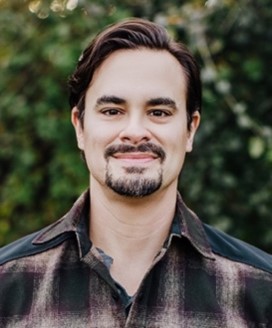
Dr. Daniel Almirall is a statistician and effectiveness-implementation methodologist who develops tools to form evidence-based adaptive interventions. Adaptive interventions are used to guide individualized intervention guidelines for the on-going management of chronic illnesses or disorders such as drug abuse, depression, anxiety, autism, obesity, or HIV/AIDS. Dr. Almirall is an expert in methods related to the design, execution, and analysis of sequential, multiple-assignment, randomized trials (SMARTs), which are used to build and optimize AIs. More recently, Dr. Almirall has been developing methods to inform adaptive implementation strategies and multi-level adaptive implementation interventions (MAISYs). This includes the development of design and analysis methods for Clustered SMARTs and Multi-level Implementation SMARTs. He is particularly interested in applications in mental health and substance use. He is MPI of the NIDA-funded MAPS Center Methodologies for Adapting and Personalizing Prevention, Treatment, and Recovery Services for SUD and HIV.

Dr. Rinad Beidas, Ph.D., is the Director of the Penn Medicine Nudge Unit; Founder and Director of the Penn Implementation Science Center at the Leonard Davis Institute (PISCE@LDI); and Associate Director at the Center for Health Incentives and Behavioral Economics (CHIBE). She is an Associate Professor of Psychiatry; Medical Ethics and Health Policy; and Medicine at the Perelman School of Medicine at the University of Pennsylvania. Major scientific discoveries have produced scores of evidence-based practices (EBPs) to improve health and mental health. Unfortunately, many of these EBPs never make their way into routine health care delivery. Implementation science is the study of methods to promote the systematic uptake of EBPs into routine care with the broad goal of ensuring that scientific discoveries realize their potential and improve people’s lives. Her research program is designed to improve the quality of health and mental health services through implementation science. To conduct this work, she collaborates closely with key stakeholders, including patients, clinicians, health system leaders, payers, and policy-makers, to develop natural laboratories in which to answer questions of interest. These labs span diverse health care settings, including community mental health clinics in Philadelphia, the network of Penn Medicine clinics and hospitals serving individuals with cancer, health centers providing HIV care, and the Mental Health Research Network, a national practice-based research network of 14 healthcare systems.

Dr. Jeannine M. Brant, Ph.D., APRN-CNS, AOCN, FAAN, is an oncology clinical nurse specialist and Executive Director of Clinical Science & Innovation at the City of Hope Cancer Center in Duarte, California. She is recognized as a community, regional, and national expert on pain, cancer, and palliative care. Dr. Brant’s clinical work and program of research includes improving patient symptoms, developing clinically applicable tools to gather patient-reported outcomes, and focusing on nursing sensitive indicators that lead to quality nursing and interdisciplinary care. In a previous role, Dr. Brant served as Director and Lead Scientist for the Collaborative Science and Innovation (CSI) Department at Billings Clinic and was also the Principal Investigator for the Montana Cancer Consortium Cancer Control Delivery Research (CCDR) through the National Community Oncology Research Program (NCORP). She also served on the Joe Biden Moonshot Panel, Clinical Trials Workgroup, the National Quality Forum Opioid Use and Use Disorder Panel, and the American Nurses Association Palliative Care Steering Panel. In her daily role, Dr. Brant mentors nurses and other clinicians to conduct studies that span population health needs, with a focus on studies focused on hospital and ambulatory based cancer care. She also has a keen interest and expertise in multi-level implementation science to test strategies to integrate evidence into practice. She has more than 150 contributions to the literature and has delivered more than 200 national and international seminars and symposia on her areas of expertise.
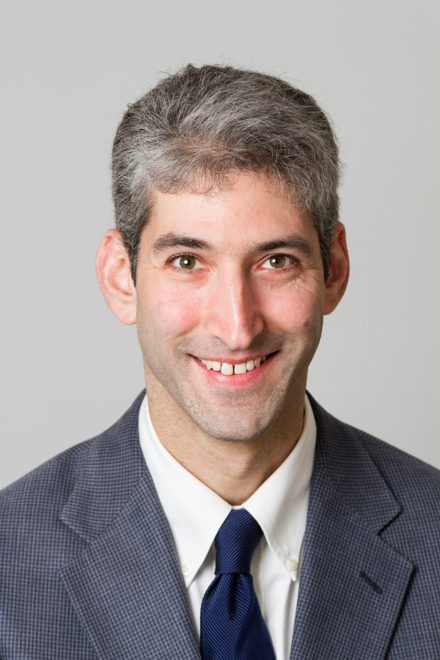
Dr. David Chambers is Deputy Director for Implementation Science in the Office of the Director in the Division of Cancer Control and Population Sciences (DCCPS) at the National Cancer Institute (NCI). Dr. Chambers manages a team focusing on efforts to build and advance the field of Implementation Science (IS) through funding opportunity announcements, training programs, research activities, dissemination platforms, and enhancement of partnerships and networks to integrate research, practice and policy. Prior to his arrival at NIH, Dr. Chambers worked as a member of a research team at Oxford University, where he studied national efforts to implement evidence-based practice within healthcare systems. He publishes on strategic research directions in implementation science and serves as a plenary speaker at numerous scientific conferences. He received his A.B. degree (with Honors) in Economics from Brown University in 1997, and an M.Sc. and D.Phil degree in Management Studies (Organisational Behaviour) in 1998 and 2001, respectively, from Oxford University (UK).

Dr. Anne Chiang serves as an Associate Professor of Medicine in the Section of Medical Oncology at Yale, specializing in thoracic oncology, with a background in translational research in metastasis, as well as extensive experience in clinical practice in both academic and community settings. I provide clinical care to patients with thoracic cancer, while providing practice-based education to oncology fellows, residents and medical students. My clinical focus has been to build a small cell lung cancer program at Yale with a comprehensive portfolio of clinical trials testing novel therapeutics. My research interests focus on development of clinical trials and translational studies to test novel agents and combinations with immune checkpoint inhibitors for both small cell and non-small cell lung tumors. I’m committed to providing access to quality, innovative clinical research to patients and serve as the SWOG Executive Officer for the Lung and Breast Committees. In addition, I am the Chief Integration Officer and Deputy Chief Medical Officer for Smilow Cancer Hospital (SCH). I have helped to build our SCH Network and oversee operations, quality efforts and clinical research in our Smilow Care Centers in 15 community locations. I have a particular focus in quality measurement and improvement and have spearheaded quality initiatives locally and nationally for ASCO.
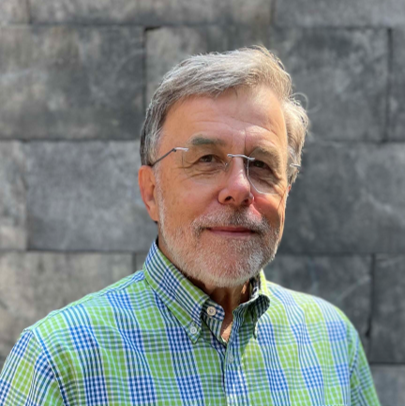
Dr. Russell Glasgow is the Director of the Dissemination and Implementation Science Program of ACCORDS (https://bit.ly/2BnJzuk) and research professor in the Department of Family Medicine at the University of Colorado School of Medicine. From 2010- 2014, he was Deputy Director for Implementation Science in the Division of Cancer Control and Population Science at the U.S. National Cancer Institute. Dr. Glasgow is one of the original developers of the RE-AIM (www.re-aim.org), PRISM and Dynamic Sustainability frameworks. He currently directs an NCI funded implementation science center. Dr. Russell Glasgow was trained as a clinical psychologist and has worked at the interface of individual, organizational, community and population health related interventions. He is an implementation scientist whose work focuses on public health issues of studying and enhancing the reach and adoption of evidence-based programs; adaptation and context; and pragmatic research methods and measures to enhance health equity and sustainment. Dr. Glasgow has published over 500 articles, been the PI on 25 NIH or AHRQ grants, and is among the top 1% of most frequently cited social scientists (Clarivate). He currently focuses much of his time on mentoring, training, and building capacity in implementation science and is Multiple PI on the University of Colorado NHLBI funded K12 training program in implementation science.

Dr. Katrina Goddard, Ph.D. was appointed Director of the Division of Cancer Control and Population Sciences (DCCPS) in October 2021. In this position, she oversees a division that covers a wide range of scientific domains and disciplines, including epidemiology, behavioral science, surveillance and statistics, cancer survivorship, and health services and outcomes research. Prior to joining NCI, Dr. Goddard was a Distinguished Investigator and Director of Translational and Applied Genomics at the Kaiser Permanente Center for Health Research (CHR) in Portland, OR. Before joining CHR in 2007, she was faculty in the Department of Epidemiology and Biostatistics (now Population and Quantitative Health Sciences) at Case Western Reserve University in Cleveland, OH. She was also a mid-career fellow at the Centers for Disease Control and Prevention in Genetics & Public Health Research and Practice. Dr. Goddard is a genetic epidemiologist who focuses on public health genomics and the translation of genomic applications into clinical practice. She has directed or collaborated on over 25 federally funded research studies and has held numerous leadership positions on national research consortia. While at Kaiser Permanente, she was the founding director for the NW Biobank, and she was a principal investigator (PI) of the Cancer Health Assessments Reaching Many (CHARM) study as part of the National Human Genome Research Institute (NHGRI)-funded Clinical Sequencing Evidence-Generating Research (CSER) consortium, which has an overarching goal of investigating the integration of genome-scale sequencing into clinical care for diverse and medically underserved individuals.
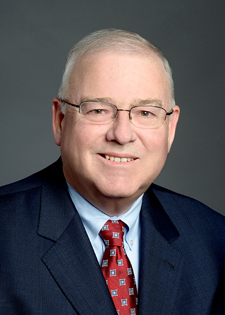
Dr. Stephen S. Grubbs joined the American Society of Clinical Oncology (ASCO) in July 2015 as Vice President of the Care Delivery Department after 31 years as a practicing medical oncologist in Newark, Delaware at the Helen F. Graham Cancer Center. He served as managing partner of his independent medical practice, Medical Oncology Hematology Consultants, PA. The ASCO Care Delivery department supports practicing oncologists both domestically and internationally through ASCO quality programs, practice business intelligence and support, payment reform and value-based care delivery design, practice education, and support of ASCO advocacy. He is a chemical engineering graduate of Purdue University and graduate of the Thomas Jefferson University Medical School. Medical postgraduate training in Internal Medicine was completed at the Medical Center of Delaware and Hematology and Oncology at the Dartmouth Hitchcock Medical Center. He served as the Principal Investigator of the Delaware Christiana Care NCORP and Board member of the NCI sponsored Alliance cooperative research group. He remains a member for the Alliance Foundation Board and Executive Committee. He is a member of the state of Delaware Cancer Consortium Council and the Early Detection and Prevention Committee. He is a past member of the ASCO Board of Directors as well as the Ethics, Finance, Research, and Government Relations Committees and past president of the Medical Society of Delaware.

Dr. Erin E. Hahn, Ph.D., MPH, is a health services researcher and implementation scientist with a primary research interest in quality of care in oncology and the implementation of evidence-informed practices. Dr. Hahn is a Research Scientist with Kaiser Permanente Southern California and is an Associate Professor in the Kaiser Permanente Bernard J. Tyson School of Medicine Department of Health Systems Science. Dr. Hahn is currently Principal Investigator of multiple externally funded studies including a clinical trial evaluating a primary care-led model of cancer survivorship care, an implementation trial focused on testing implementation strategies to increase HPV vaccination in children, and a multi-site program grant assessing the perceptions and care experiences of adolescent and young adult cancer survivors. She recently completed several cancer care delivery studies including a pragmatic randomized controlled trial of depression screening in oncology using a hybrid effectiveness-implementation design, a behavioral study of patient engagement in colorectal cancer screening, and assessment of low-value cancer care services. Dr. Hahn is also co-investigator for the National Cancer Institute Community Oncology Research Program (NCORP) and site lead for the Cancer Care Delivery Research component. Additionally, Dr. Hahn is a member of the KPSC Care Improvement Research Team (CIRT) housed within the Division of Health Services Research and Implementation Science. CIRT focuses on the implementation, dissemination, scale-up and spread of effective programs throughout the health system.

Dr. Michael Hassett, M.D., MPH, is a medical oncologist at the Dana-Farber Cancer Institute (DFCI) and an Associate Professor of Medicine at Harvard Medical School, Boston, MA. He works in the Division of Population Sciences conducting research focused on quality, disparities, costs, outcomes, clinical informatics, and patient-reported data; and in the Susan F. Smith Center for Women’s Cancers caring for patients with breast cancer. At Dana-Farber, he is the Medical Director of Clinical Information Systems and of the Cancer Registry. He is the co-Principal Investigator the SIMPRO Research Consortium (UM1CA233080), which is developing, deploying, and evaluating the impact of a novel, Epic EHR-embedded patient-reported outcomes-based symptom management program (eSyM) across six community-based cancer centers. He has served on multiple expert panels and committees sponsored by ASCO, the Centers for Medicare and Medicaid Services, the National Quality Forum, and the National Comprehensive Care Network. He is a Fellow of the American Society of Clinical Oncology.

Dr. Katie Heley, Ph.D., MPH, is a Cancer Prevention Fellow in the Health Communication and Informatics Research Branch (HCIRB). Her research focuses on the intersection of health and communication, using mixed methods to understand and influence attitudes, behavior, policy support and stigma around chronic, non-communicable diseases and their related behaviors. Her work focuses on health, visual, and policy communication; media and health; message effects, marketing, persuasion, and strategic communication around health behaviors; health-related stigma; and public health ethics. Katie also has extensive experience in intervention development, implementation, and evaluation; public health practice; program management; health literacy initiatives; and stigma-reduction efforts. Dr. Heley received her Ph.D. and M.P.H. from the Johns Hopkins Bloomberg School of Public Health and, as part of her doctoral training, also studied at the University of Pennsylvania's Annenberg School for Communication. Her dissertation explored how traditional, digital, and social media sources communicate around and frame health issues and behaviors; misinformation on social media; and visual framing on social media and in online news. Prior to working and studying at Johns Hopkins, she graduated Phi Beta Kappa from Cornell University.

Dr. Noah Ivers (M.D., CCFP, Ph.D.) is a family physician at Women's College Hospital, scientist at Women’s College Research Institute, and innovation fellow at the Women's College Institute for Health System Solutions. He is also an Associate Professor in the Department of Family and Community Medicine and at the Institute for Health Policy, Management and Evaluation at the University of Toronto. He holds a Canada Research Chair in the Implementation of Evidence Based Practice. Noah's research focuses on the use of data to drive evidence-based, patient-centered improvements in healthcare. He has conducted multiple pragmatic randomized trials, systematic reviews, and qualitative work on health services and quality improvement interventions.

Dr. Paul Jacobsen, Ph.D., is an Associate Director in the National Cancer Institute’s Division of Cancer Control and Population Sciences where he directs the Healthcare Delivery Research Program. In this role, he leads a team whose mission is to advance innovative research to improve the delivery of cancer-related care to patients, families, and communities. Before entering government service, Dr. Jacobsen served as Associate Center Director for Population Science at the Moffitt Cancer Center and Professor of Psychology at the University of South Florida. Over the past 30 years, his research has focused on using knowledge from the behavioral and social sciences to understand and address quality of life and quality of care issues in oncology. Dr. Jacobsen is a past recipient of the of the Trish Green Award for Excellence in Quality of Life Research from the American Cancer Society and the Jimmie Holland Distinguished Leadership Award from the American Psychosocial Oncology Society.

Dr. Simon Jones is a Professor of Population Health and Director of Health Analytics at the New York University Grossman School of Medicine. He is a health services researcher with experience leading complex studies in over 20 countries on a variety of topics. His healthcare career began in health informatics in the UK and included national health service and industry experience. Since moving to the US, he has developed expertise in research focused on health care disparities and the associated methodological challenges, with recent studies being some of the first to identify COVID-related disparities. At NYU, Dr. Jones also serves as the principal statistician for the Rapid Cycle Randomized Controlled Trial Lab.
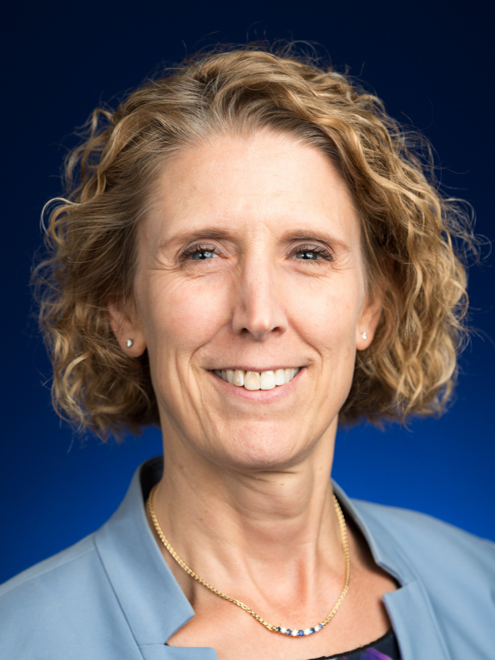
Dr. Amy M. Kilbourne, Ph.D., MPH, is Director of the VA Quality Enhancement Research Initiative (QUERI) and Professor of Learning Health Sciences at the University of Michigan (UM) Medical School. With over 50 centers across the U.S., the mission of QUERI is to improve Veteran health by accelerating the implementation of research findings into real-world practice. Dr. Kilbourne is a national expert in implementation science, notably the development of effective strategies that support health care providers in delivering effective innovations more rapidly to their patients to improve outcomes. She has developed and operationalized several implementation strategies including Replicating Effective Programs (REP) and Virtual Facilitation and conducted the first national sequential multiple assignment randomized trial (SMART) study to inform more precise implementation support to community organizations. Dr. Kilbourne also led the development and implementation of Life Goals Collaborative Care, a psychosocial intervention designed to improve physical and mental health outcomes for persons with mental disorders that is currently being implemented in the NIH-funded multi-site Disparities Elimination through Coordinated Interventions to Prevent and Control Heart and Lung Disease Risk (DECIPHeR) initiative. She has also led several national implementation and quality improvement initiatives including a national population management program to provide outreach services for Veterans with serious mental illness and chronic disease (Re-Engage), a national health equity research agenda, and most recently, a Learning Health Systems research lifecycle.
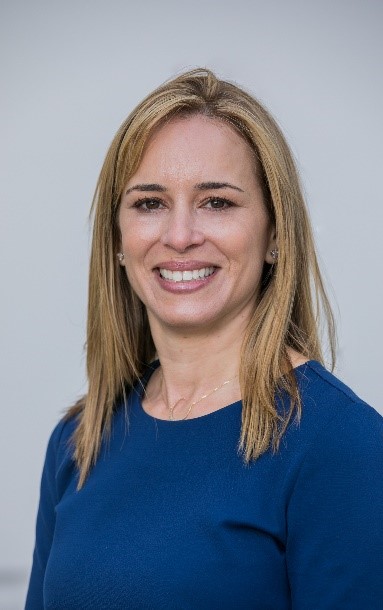
Dr. Erin Kobetz, Ph.D., is a Tenured Professor in the Departments of Medicine, Public Health Sciences, and Obstetrics and Gynecology at the University of Miami (UM) Miller School of Medicine. Recipient of the John K. and Judy H. Schulte Senior Endowed Chair in Cancer Research. Additionally, she is Associate Director of Population Science and Cancer Disparities at UM’s Sylvester Comprehensive Cancer Center (SCCC), as well as the Chief of Population Health and Cancer Disparities for UHealth Oncology Service line. Dr. Kobetz also serves as Program Director for the Community Engagement and Multidisciplinary Team Science Components of UM’s Clinical Translational Science Institute (CTSA) and is the University’s Vice Provost for Research (VPR). She earned a Master's in Public Health from Rollins School of Public Health at Emory University (1999), and joined the University of Miami in September of 2004, after completing her Ph.D. at the University of North Carolina at Chapel Hill, Gillings School of Public Health. Soon after, Dr. Kobetz established Patnè en Aksyon (Partners in Action), Sylvester’s first ever campus community partnership in Little Haiti, the largest enclave of Haitian settlement, and remains committed to integrating diverse stakeholders into the translational research continuum. Dr. Kobetz currently works as the Principal Investigator of multiple grants from the National Cancer Institute (NCI) and National Institute of Minority Health and Health Disparity (NIHMD,) to support collaborative science with numerous South Florida communities. Collectively, they have garnered over 25 million dollars in extramural funding and serve as the University’s model for stakeholder engagement.

Dr. Sarah Kobrin, Ph.D., MPH, is best known for her work in HPV vaccine uptake, use of health behavior theory, cancer screening, and promoting HDRP’s focus on the effects of organizational characteristics on cancer prevention and control. She is currently Chief of the Health Systems & Interventions Research Branch at the National Cancer Institute, a position she has held since 2015. Under her leadership, the scientists, fellows and staff in the branch promote research improve cancer care delivery by accounting for multilevel influences, the role of Information Technology, and the performance of healthcare teams. Dr. Kobrin manages and conducts health systems and behavioral research related to uptake of the HPV vaccine, shared medical decision making, cancer screening, use of theory in applied research, and behavioral and theoretical measurement.

Dr. Brian S. Mittman, Ph.D., is a Senior Scientist at Kaiser Permanente Southern California’s Department of Research and Evaluation with additional affiliations at the University of Southern California (USC) and University of California at Los Angeles (UCLA), where he co-leads the UCLA Clinical and Translational Science Institute (CTSI) Implementation and Improvement Science Initiative. He previously served as a Senior Scientist at the US Department of Veterans Affairs (VA) Greater Los Angeles Healthcare System and a Visiting Professor in the UCLA School of Public Health and Anderson Graduate School of Management. His research interests include implementation and improvement science, health systems science, embedded research and innovative methods for the study of complex health interventions.

Dr. Gila Neta, Ph.D., MPP, is an epidemiologist and program director for Implementation Science in the Office of the Director in the Division of Cancer Control and Population Sciences (DCCPS) at the National Cancer Institute (NCI). Dr. Neta serves as the NCI scientific lead for the funding announcements in Dissemination and Implementation Research in Health, and assists with research and training activities related to implementation science across the Division. She has a secondary appointment within the Epidemiology and Genomics Research Program. Dr. Neta’s programmatic and research interests within implementation science include training, portfolio analysis, the use of PRECIS criteria in evaluating pragmatic trials, shared decision making and cancer screening, economic evaluation, de-implementation, and the use of standardized measurement and reporting. Dr. Neta is Co-Chair of the NIH-sponsored Annual Conference on the Science of Dissemination and Implementation. She also leads the NIH D&I working group, a trans-NIH initiative providing leadership and vision for implementation science across the NIH. Prior to joining DCCPS in May 2013, Dr. Neta conducted postdoctoral research within the Division of Cancer Epidemiology and Genetics in the Radiation Epidemiology Branch, focusing on the potential unintended health effects of radiologic medical technologies. Dr. Neta received her Master of Public Policy degree at the University of California at Berkeley in 2001, and her Doctorate in Epidemiology from Johns Hopkins University Bloomberg School of Public Health in 2009. She conducted her doctoral dissertation work at the Eunice Kennedy Shriver National Institute for Child Health and Human Development.

Dr. Wynne E. Norton, Ph.D., is a Program Director in Implementation Science in the Division of Cancer Control and Population Sciences at the National Cancer Institute. She also holds a secondary appointment in the Healthcare Delivery Research Program and serves as co-chair of the DCCPS Clinical Trials Coordination Group. Dr. Norton’s research interests include de-implementation of ineffective interventions, evidence-based cancer care delivery, and pragmatic trials of implementation strategies. She serves as faculty for the NCI Training Institute for Dissemination and Implementation in Cancer and as a scientific collaborator on three NCI Cancer Moonshot SM Initiatives: Accelerating Colorectal Cancer Screening and Follow-up Through Implementation Science Consortium (ACCSIS), Improving the Management of symptoms during And following Cancer Treatment Consortium (IMPACT), and the Implementation Science Centers in Cancer Control (ISC3). She is also on the editorial board of the journal Implementation Science. Dr. Norton received her Ph.D. in social psychology from the University of Connecticut (2009). Her dissertation was funded by an individual National Research Service Award from the National Institute of Mental Health. Dr. Norton received her B.A. in psychology with honors from the College of William and Mary (2004).

Dr. Ray U. Osarogiagbon is Chief Scientist at the Baptist Memorial Healthcare Corporation, Director of the Multidisciplinary Thoracic Oncology Program and the Thoracic Oncology Research (ThOR) Group at the Baptist Cancer Center, in Memphis, Tennessee.

Dr. Veronika Panagiotou, Ph.D. was diagnosed with Non-Hodgkin’s Lymphoma a few days after celebrating her 25th birthday. Eight years later, she uses her cancer diagnosis and the knowledge she has gained through the process to empower other cancer survivors to tell their stories and support their advocacy. Veronika currently serves as the advocacy and program manager at the National Coalition for Cancer Survivorship (NCCS). She supports over 700 advocates that are a part of the Cancer Policy and Advocacy Team (CPAT). She empowers and educates patient advocates on the most pressing policy issues facing quality cancer care to facilitate their engagement in public policy advocacy. She has a long history of being an advocate with NCCS. She shared her story of how access to insurance through the Affordable Care Act (ACA) saved her life, advocated for paid leave for cancer survivors during the pandemic, and discussed meeting with and building ongoing relationships with her members of Congress. Dr. Veronika Panagiotou has presented research across the country on the topics of food insecurity, human centered design, and civic engagement. She obtained her doctorate in Community Engagement at Point Park University in 2021. She defended her dissertation entitled, “Do Service-Learning Models Create an Opportunity to Cultivate Civic Engagement Outcomes at Point Park University? A Phenomenological Study of Students’ Perspectives in Pittsburgh, Pennsylvania. Dr. Veronika Panagiotou also holds a MS in Applied Developmental Psychology from the University of Pittsburgh and a BA in Psychology from Point Park University.

Dr. Gareth Parry, Independent Consultant, has a background in health services research, focusing on the evaluation of improvement and implementation initiatives, and quality and safety measurement. He was recently Senior Scientist at the Institute for Healthcare Improvement (IHI), where he led the evaluation department, developing a novel mixed-method rapid-cycle evaluation approach for implementation and improvement projects. He regularly taught improvement, implementation, and evaluation methods across the globe. At IHI, he also developed and applied patient safety measurement tools in adult and pediatric care. His early career in the United Kingdom (UK) focused on developing and applying the Clinical Risk Index for Babies (CRIB) Score, used internationally in clinical and service delivery research. He undertook similar work in pediatric and adult intensive care, becoming the founding director of the UK Pediatric Intensive Care Audit Network (PICANet).

Crystal Reed is a Health Science Policy Analyst in the Office of the Associate Director of the Healthcare Delivery Research Program (HDRP). Crystal provides project management, communications, and strategic support to the HDRP team. She coordinates HDRP travel activities and supports the program on webinar facilitation and publicizing funding announcements. Prior to joining HDRP, Crystal held several NIH contractor roles with NCI, NIAID, and NIMHD. She has 20+ years of experience managing numerous health related contracts, and a grant focusing on Health Disparities. In these roles she has excelled in project management, relationship management, and research focused on health equity, access to care, social determinants of health, and barriers in policy as they relate to disparate and under-served populations. Her noted accomplishments include co-authoring two peer reviewed journal articles in the Journal of Racial and Ethnic Health Disparities: “Health Policy Responsiveness: Lessons Learned from Maryland and Prince George’s County” and “Cardiovascular Disease in the Nation’s Capital: How Policy and the Built Environment Contribute to Disparities in CVD Risk Factors in Washington, D.C.” She also served as a panelist on a Congressional Black Caucus Honorary Session, “Mobility: A Game Changer for African American Communities,” focusing on the use of mobile technologies to improve health. Crystal received her Master’s degree in Healthcare Administration (MHA) from University of Maryland, and her Graduate Certificate in Public Administration from the University of Baltimore. Additionally, she holds a BA in Health Science and Policy from the University of Maryland Baltimore County.

Trish Silber is President of Aliniad Consulting Partners, a Washington DC-based global consulting firm focused on strategic alignment, adaptive leadership and change. She is an expert in organizational development, vertical leadership development, executive coaching, and conflict resolution. Trish has over 25 years of experience consulting in all sectors with organizations facing rapid and unprecedented changes in technology, markets, strategy, and leadership. As a result, her consulting process is nimble. She integrates leading edge research in fields such as systems thinking and its successor, complexity science, with creative design and the realities of her clients’ circumstances. Clients frequently contact Trish to design and facilitate strategic, generative and/or high-stakes conversations, particularly when multiple stakeholders are involved. Trish received her Masters degree in Business Administration from Santa Clara University and holds a BA in Behavioral Psychology from Connecticut College. She has completed numerous certificate programs in the fields of organizational development, vertical leadership development, executive coaching, and mediation. She previously served as faculty of the George Washington University graduate program on leadership coaching and currently provides vertical development mentoring and Global Leadership Profile (GLP) certification for executive coaches through Global Leadership Associates.
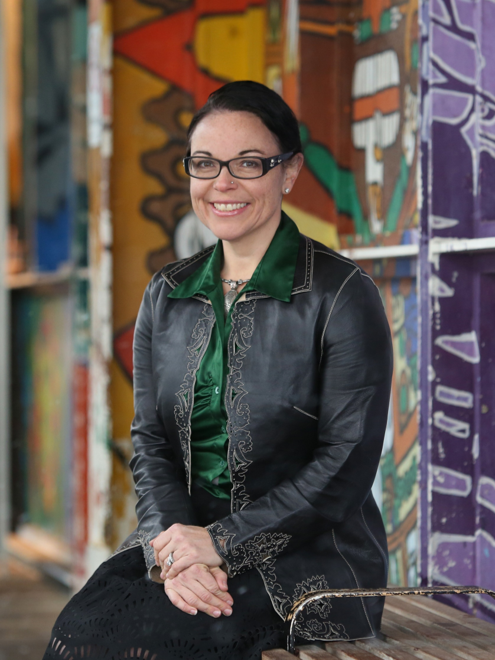
Dr. Melissa A. Simon, M.D., MPH, is the George H. Gardner Professor of Clinical Gynecology, Vice Chair of Research in the Department of Obstetrics and Gynecology at Northwestern University Feinberg School of Medicine. She is also the Founder and Director of the Center for Health Equity Transformation and the Chicago Cancer Health Equity Collaborative. She serves as the Robert H. Lurie Comprehensive Cancer Center’s Associate Director for Community Outreach and Engagement. She is an expert in implementation science, women’s health across the lifespan, minority health, community engagement and health equity. She has been recognized with numerous awards for her substantial contribution to excellence in health equity scholarship, women’s health and mentorship, including her recent election to the National Academy of Medicine. She has received the Presidential Award in Excellence in Science Mathematics and Engineering Mentorship and is a Presidential Leadership Scholar. She is a former member and current consultant to the US Preventive Services Task Force and serves on the NIH Office of Research in Women’s Health Advisory Committee.
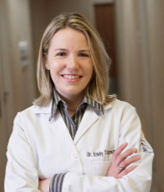
Dr. Emily S. Tonorezos, M.D., MPH, serves as director of the Office of Cancer Survivorship, part of the Division of Cancer Control and Population Sciences at the National Cancer Institute (NCI). In this position, Dr. Tonorezos leads NCI’s efforts to address the challenges facing cancer survivors and their families -- to prevent or mitigate adverse effects and to improve the health and well-being of cancer survivors from the time of diagnosis through the remainder of their lives. Dr. Tonorezos came to NCI from Memorial Sloan Kettering Cancer Center and the Weill Cornell Medical College, both in New York, NY, where she served as director of the Adult Long-Term Follow-Up Program for survivors of childhood and young adult cancers. Her research, which has been funded by the National Cancer Institute, the American Cancer Society, the American Institute of Cancer Research, and others, focuses on cardiometabolic consequences of cancer therapy, childhood and young adult cancer survivorship, diet and nutrition, and care coordination for this population. She serves as Obesity and Diabetes Mellitus Silo leader for the Children’s Oncology Group (COG) Long-Term Follow-Up Guidelines and as co-leader of the International Guideline Harmonization Group for the metabolic syndrome. She also has served on the National Academy of Sciences, Engineering and Medicine Committee on Childhood Cancer and Disability and on the Cancer Survivorship Committee, the Adolescent and Young Adult Task Force, and the Clinical Guideline Committee for the American Society of Clinical Oncology (ASCO).
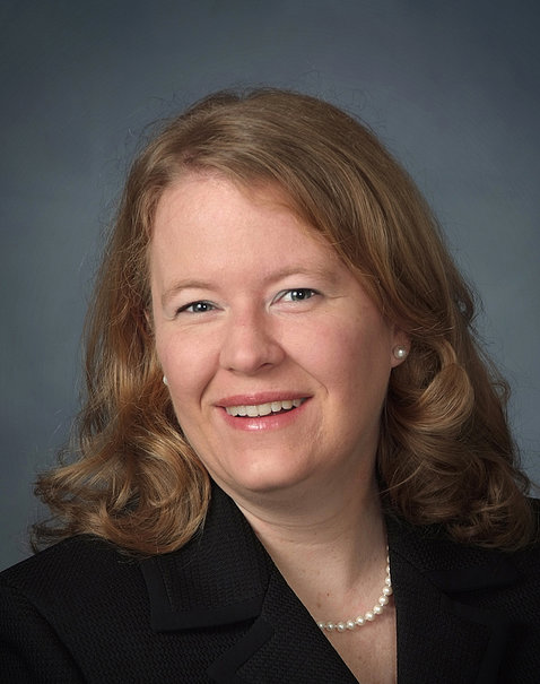
Dr. Robin C. Vanderpool, Dr.P.H., is chief of the Health Communication and Informatics Research Branch (HCIRB) in the Division of Cancer Control and Population Sciences at the National Cancer Institute (NCI). As branch chief, Dr. Vanderpool leads the development of health communication research initiatives in areas such as cancer communication surveillance, patient-provider communication, cancer risk communication, health literacy, social/new media, and connected health. Dr. Vanderpool also contributes to the Division's efforts to support NCI-designated cancer centers' community outreach and engagement activities. Dr. Vanderpool's scientific background includes both formative and interventional research on HPV vaccination, cancer screening, cancer survivorship, implementation science, and rural cancer control. Prior to joining NCI, Dr. Vanderpool was a professor in the Department of Health, Behavior & Society, part of the University of Kentucky College of Public Health. She also held leadership positions at the University of Kentucky Markey Cancer Center, as the Associate Director for Community Outreach and Engagement and Co-Director of the Behavioral and Community-Based Research Shared Resource Facility. Dr. Vanderpool earned her Doctorate of Public Health, with a concentration in Health Behavior, from the University of Kentucky. She received her Masters of Public Health in Public Health Education from Western Kentucky University and her Bachelor of Science in Psychobiology from Centre College.

Dr. Sallie J. Weaver, Ph.D., MHS, is a Senior Scientist and Program Director in the Health Systems and Interventions Research Branch (HSIRB) at the National Cancer Institute. Sallie manages and conducts research on organizational factors that influence clinical team performance, and interventions to optimize patient safety, care quality, and coordination within and across health system boundaries. She co-directs the NCI Healthcare Teams & Teamwork Processes in Cancer Care Delivery initiative to improve outcomes and experiences of people facing cancer through research on teaming and translation of evidence-based team interventions into practice. Sallie’s interests also include research addressing disparities in care quality and access. She currently supports the NCI Division of Cancer Control and Population Sciences Rural Cancer Control Research initiatives. Sallie has experience in both survey and quasi-experimental research methods, applying them to examine team and organizational performance outcomes and implementation strategies in acute and ambulatory care settings. Prior to joining NCI in October 2016, Sallie was an Associate Professor in Dept. of Anesthesiology and Critical Care Medicine at the Johns Hopkins School of Medicine. She was also core faculty in the Johns Hopkins Medicine Armstrong Institute for Patient Safety and Quality. Dr. Weaver earned her MS and PhD in Psychology from the University of Central Florida and her post-doctoral MHS in Epidemiology from the Johns Hopkins Bloomberg School of Public Health.